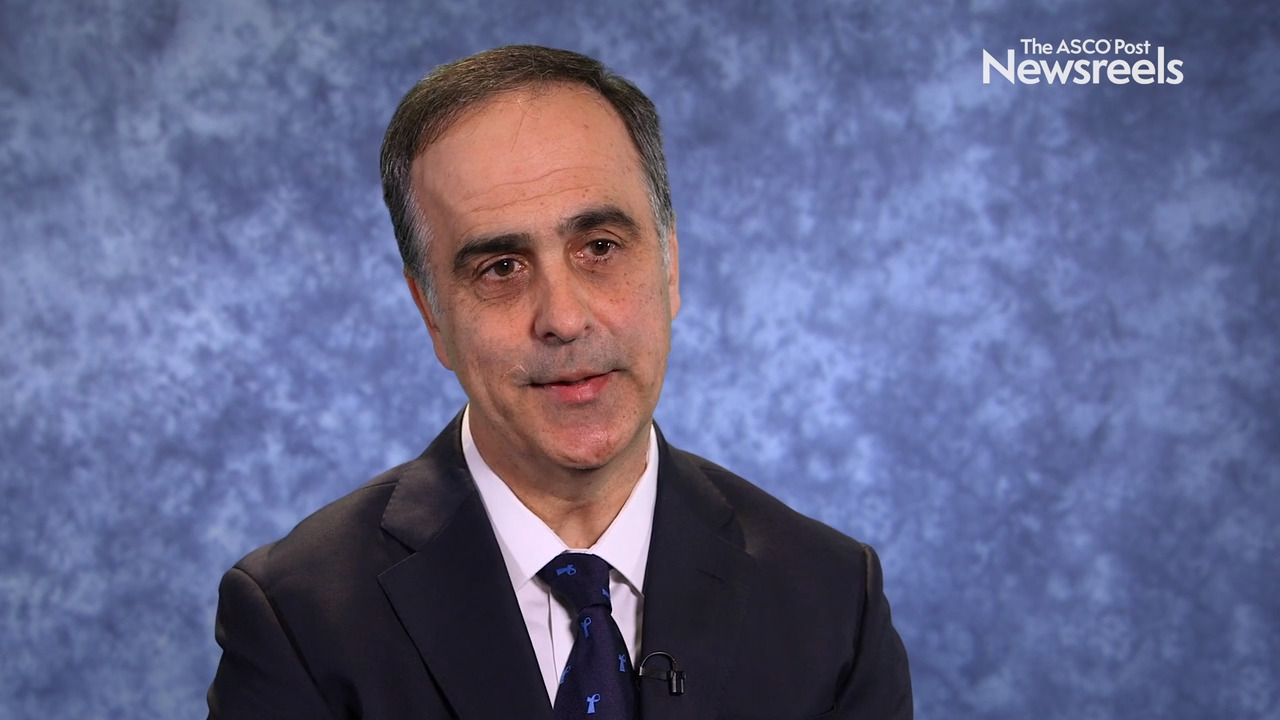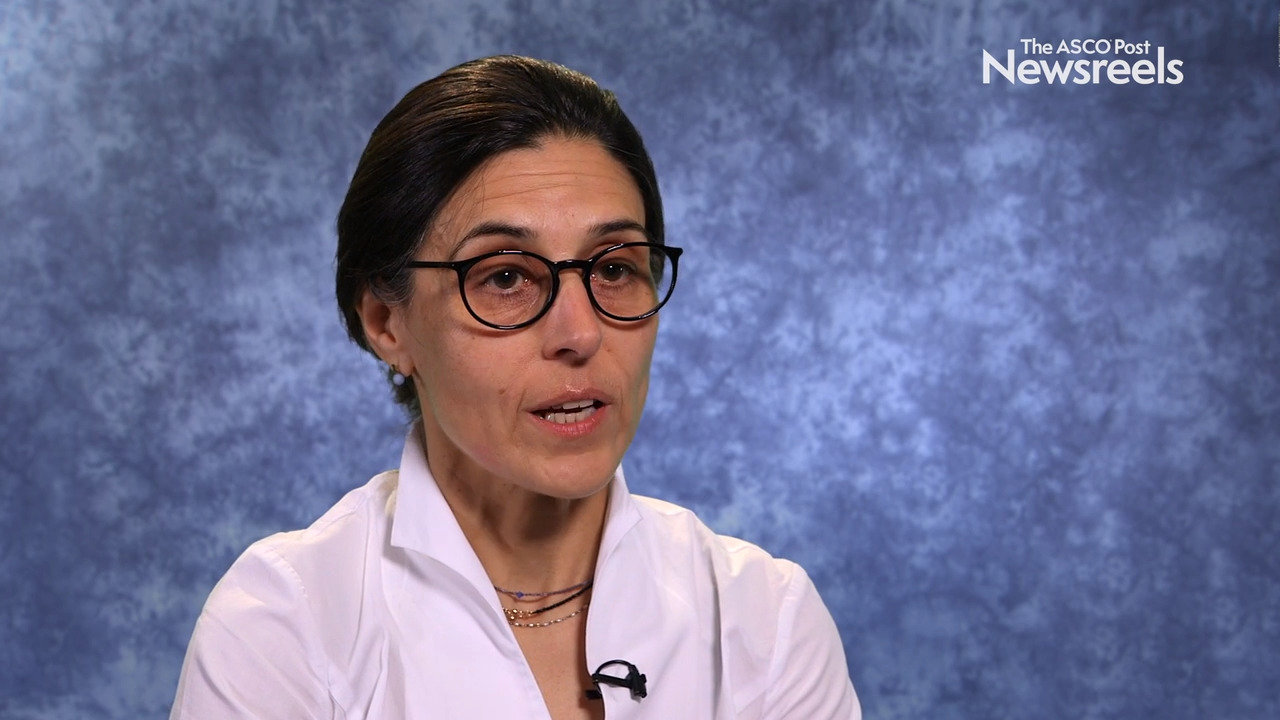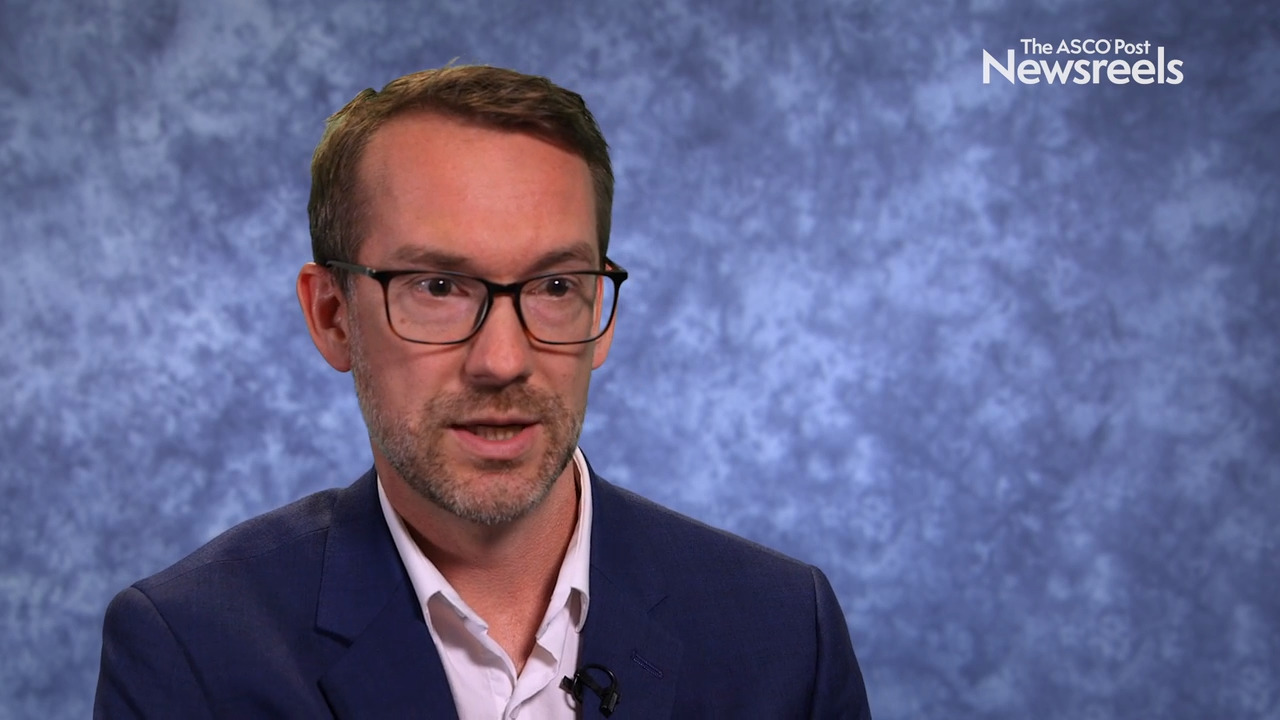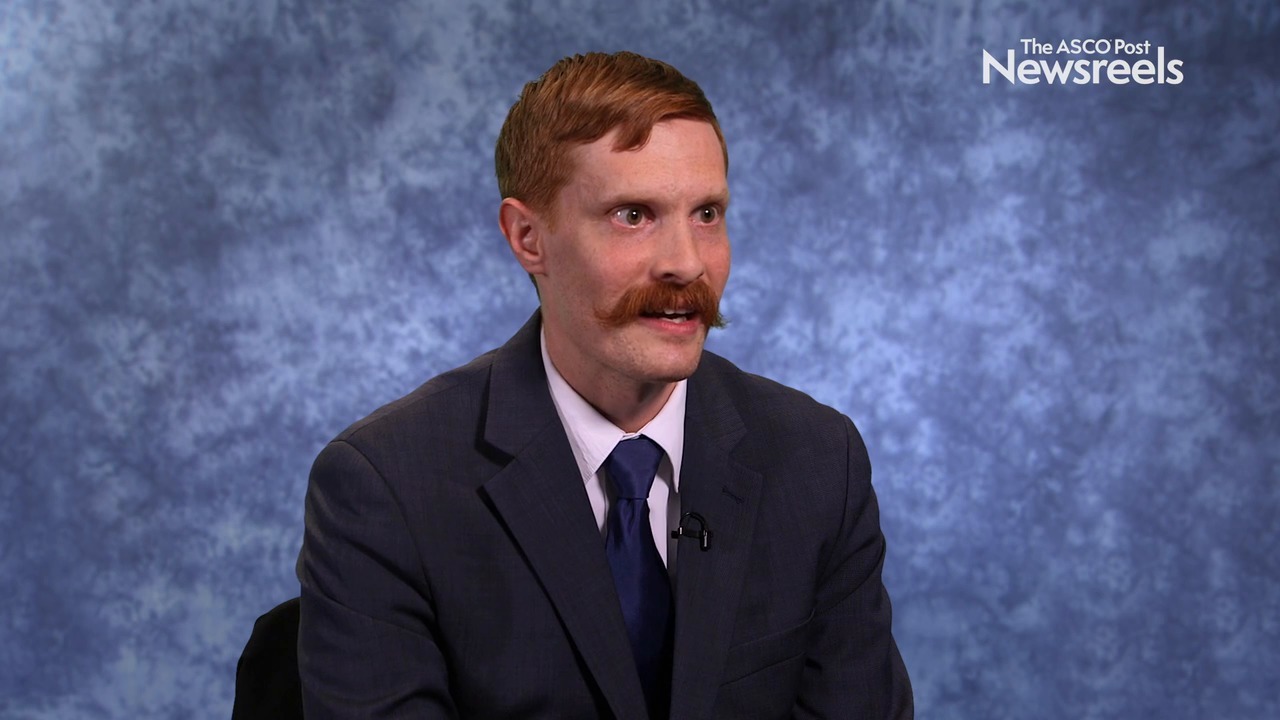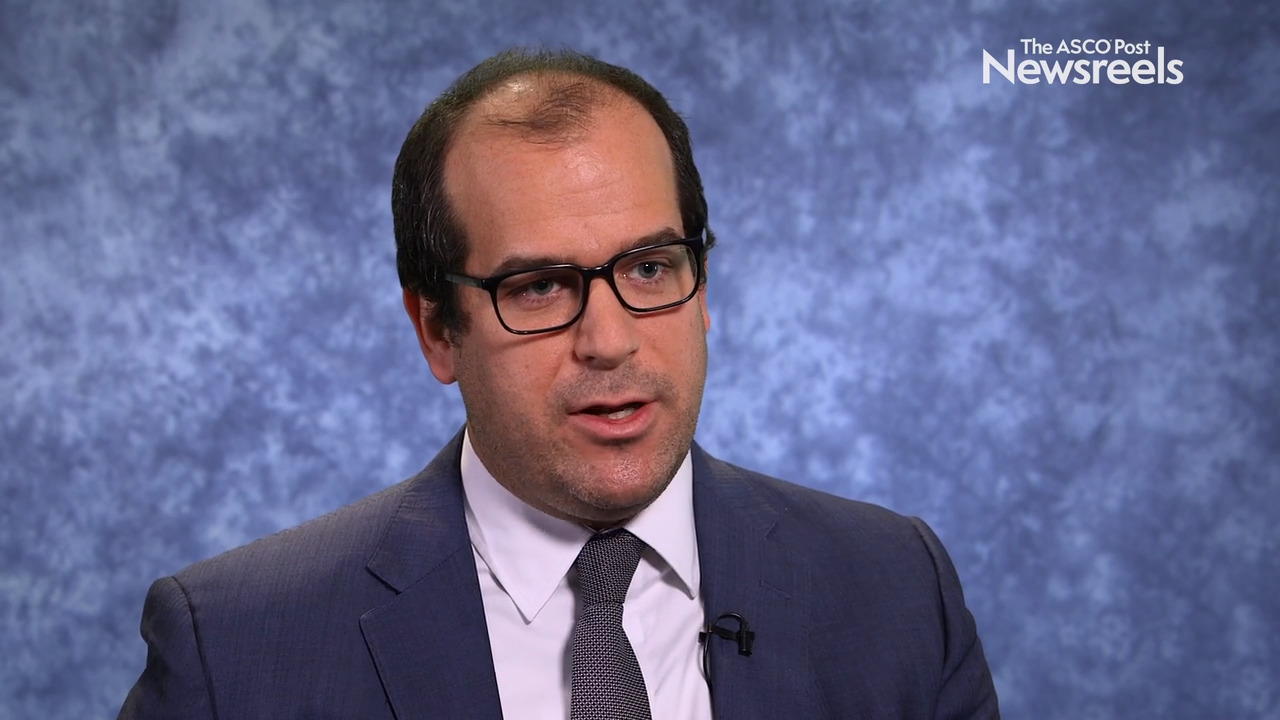Youssef Zeidan, MD, PhD, on HER2-Positive Breast Cancer: HERA Trial on Postmastectomy Radiation Therapy
2019 ASTRO Annual Meeting
Youssef Zeidan, MD, PhD, of the American University of Beirut Medical Center, discusses study findings showing that, in patients with one to three positive lymph nodes, postmastectomy radiation treatment decreased the risk of locoregional recurrence, particularly in estrogen receptor–positive disease (Abstract 83).
Andrew Kneebone, MD, of Royal North Shore Hospital, discusses phase III study findings showing that at 5 years, biochemical control was similar between adjuvant and early salvage radiotherapies, the latter sparing half of the men potential side effects of radiotherapy without any significant compromise in outcome (Abstract 77).
Alejandra Méndez Romero, MD, PhD, of Erasmus University Medical Center, discusses findings that show high local control rates with stereotactic body radiation for patients in this large published series, most of whom had colorectal cancer (Abstract 230).
Robert Olson, MD, of the BC Cancer Centre for the North, discusses a secondary analysis of the SABR-COMET trial, which showed there was a small magnitude decline in quality of life in both arms of the study but no associated detriment with stereotactic ablative radiotherapy (Abstract 148).
Ryan Phillips, MD, PhD, of Johns Hopkins Medical Institutions, discusses phase II findings suggesting that treatment with stereotactic ablative radiation significantly decreased the risk of disease progression at 6 months and increased progression-free survival (Abstract LBA3).
Daniel M. Trifiletti, MD, of the Mayo Clinic, discusses study findings showing that, between two different radiation doses (30 Gy/10 fractions vs 37.5 Gy/15 fractions), there was no difference in the time to cognitive failure, tumor control, or overall survival for patients with brain metastases (Abstract 19).
